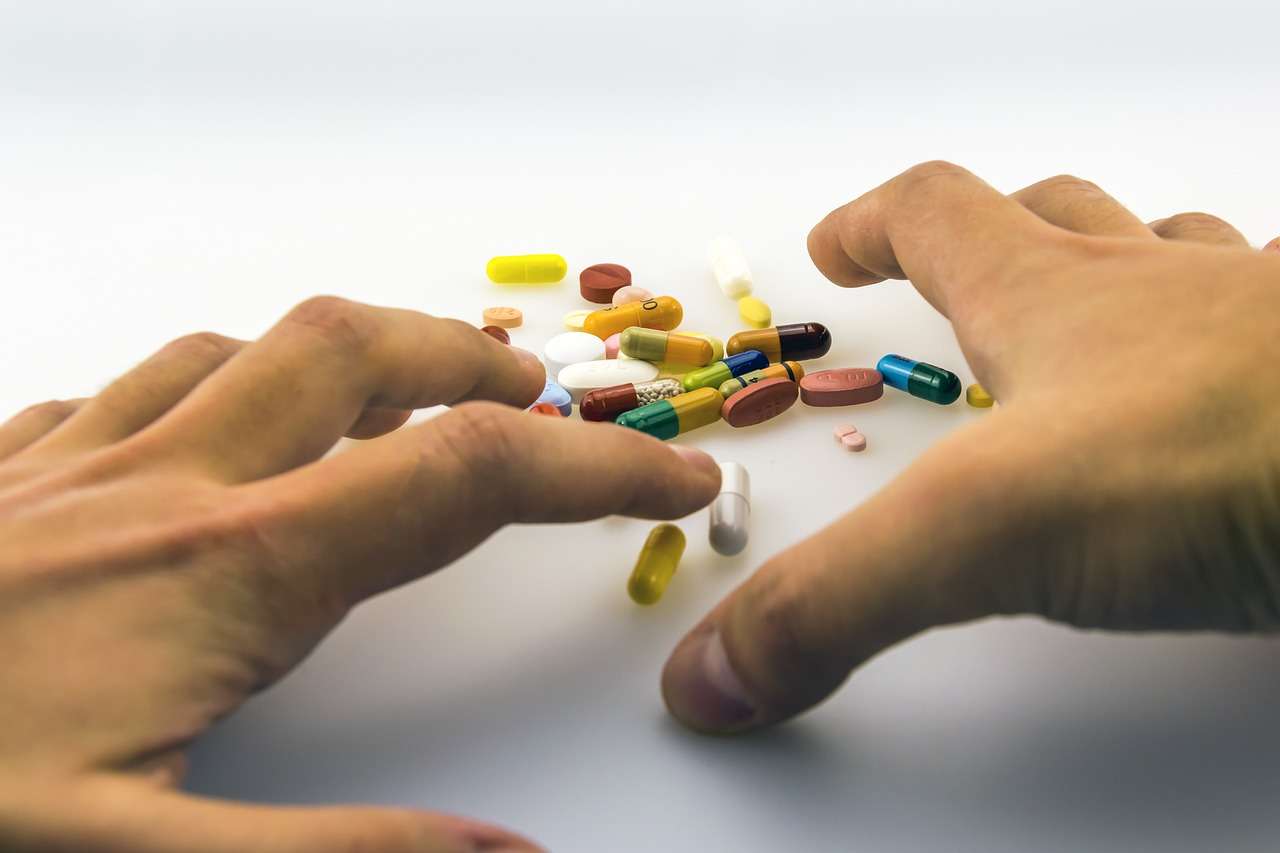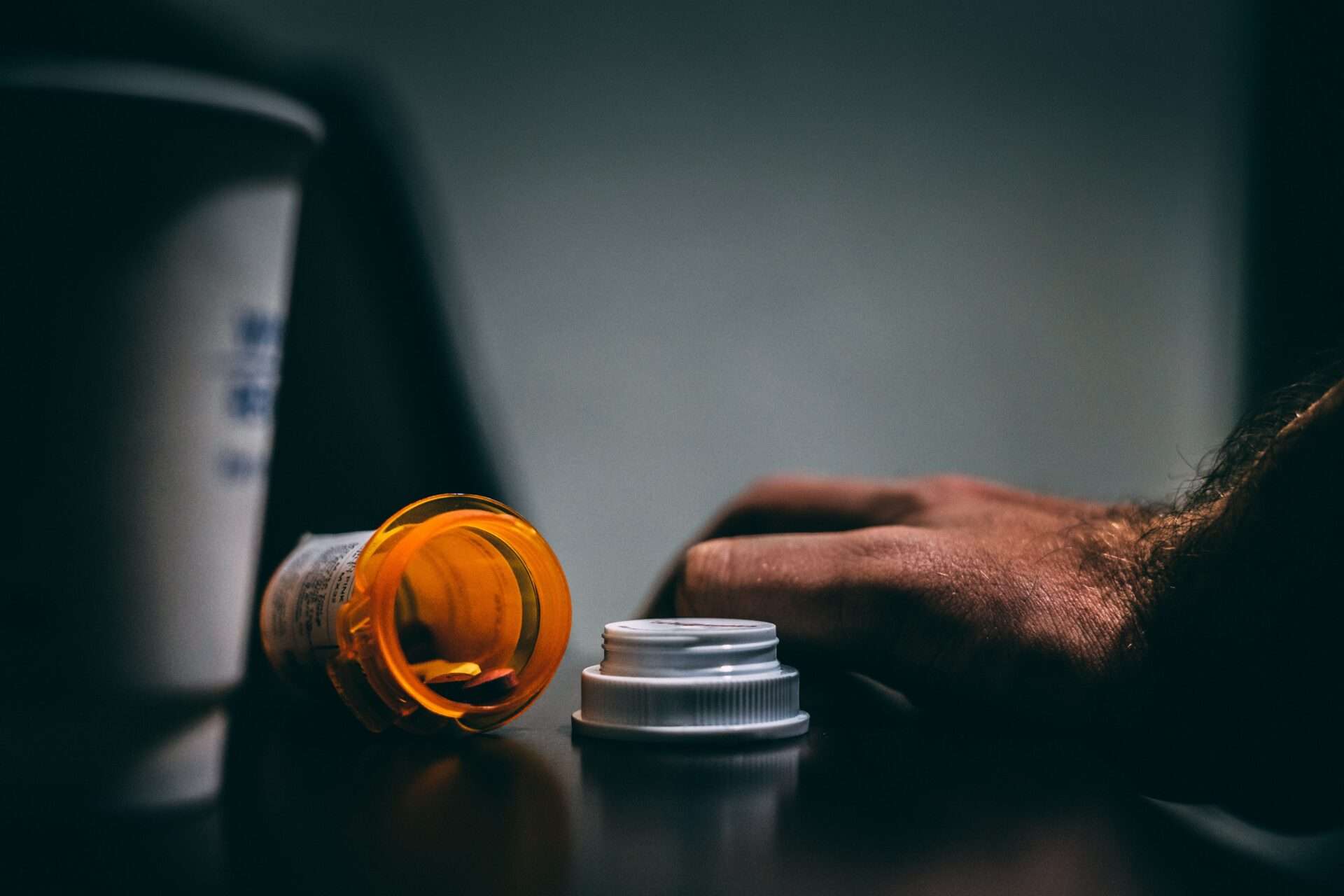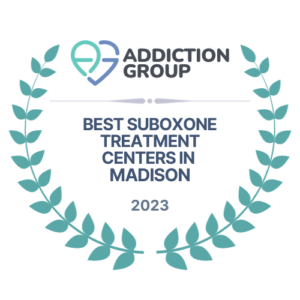Navigating the intricacies of opioid addiction and treatment often stirs up a host of complex questions, one of which is: Is overdosing on Suboxone possible? This question isn’t as straightforward as it may seem at first glance. To adequately address this concern, it is necessary to delve deeper into the nature of Suboxone, the way it operates, and its role in the sphere of addiction treatment.
Suboxone, a medication used to alleviate the symptoms of opioid withdrawal, has been a game-changer in the field of addiction therapy. However, it’s not without its complications and concerns. Despite being a therapeutic drug, could it pose an overdose risk? Understanding the risk, if it exists, requires us to comprehensively explore Suboxone’s characteristics, its usage, and its crucial role in mitigating the ongoing opioid crisis.


Understanding Suboxone
Suboxone is a prescription medication, a brand name for a combination of two drugs: buprenorphine and naloxone. Buprenorphine, a partial opioid agonist, offers relief from withdrawal symptoms. Simultaneously, naloxone, an opioid antagonist, discourages misuse of the drug. The composition serves a specific purpose in managing opioid dependence, making Suboxone a crucial tool in addiction treatment.
Purpose and Usage of Suboxone
Suboxone, primarily designed for opioid addiction treatment, plays an essential role in the recovery process. The medication’s usage lies in its capability to minimize withdrawal symptoms experienced during detoxification from opioids. By alleviating physical discomfort and reducing cravings, Suboxone allows individuals undergoing treatment to focus on therapy and recovery, not just the physical withdrawal.
The Suboxone usage is a part of a larger treatment program that includes counseling and psychological support. This comprehensive approach, known as Medication-Assisted Treatment (MAT), improves outcomes and increases chances of long-term recovery. However, it’s crucial to note that Suboxone is a potent drug and must be used under the supervision of healthcare professionals to avoid potential misuse or adverse effects.
The Opioid Crisis and Suboxone’s Role
In light of the opioid crisis, Suboxone has gained significant attention. The opioid crisis refers to the surge in the use of both illegal opioids, such as heroin, and legally prescribed opioid painkillers. This increase has led to widespread dependency and a drastic rise in overdose deaths.
In this dire context, Suboxone plays a pivotal role. It provides a safer alternative to methadone for opioid substitution therapy and allows individuals with opioid addiction to regain control of their lives. By helping to curb opioid withdrawal symptoms and decrease cravings, Suboxone supports recovery efforts. Despite this, it’s important to remember that Suboxone itself is an opioid, albeit a unique one, and thus holds the potential for misuse and dependency.
The Potential for Suboxone Overdose
Given the importance of Suboxone in managing opioid addiction, there’s a need to investigate the potential for Suboxone overdose. Even though Suboxone is used therapeutically, it doesn’t make it immune to the risk of misuse or overdose, especially if it’s taken in a manner inconsistent with medical guidance.
What Does Overdosing on Suboxone Mean?
Overdose, in a general sense, refers to the intake of a substance in quantities greater than the recommended or generally recognized as safe dosage. Overdosing on Suboxone implies consuming the medication in such a way or amount that it poses a severe threat to one’s health. An overdose could lead to a range of health complications, including respiratory distress, unconsciousness, and in extreme cases, it could be life-threatening.
While Suboxone is designed to reduce the likelihood of overdose (thanks to the inclusion of naloxone), it doesn’t entirely eliminate the risk, especially in cases of misuse or when combined with other substances, particularly other central nervous system depressants like alcohol or benzodiazepines.
Is It Possible and How Likely?
The question of whether it’s possible to overdose on Suboxone often leads to mixed responses. Technically, it is possible, but it’s less likely than with full opioid agonists such as heroin or methadone. The buprenorphine in Suboxone is a partial opioid agonist, which means it doesn’t stimulate the opioid receptors in the brain as strongly as full agonists do. It has a ‘ceiling effect’ that limits the feeling of euphoria and respiratory depression that come with opioid use, reducing the likelihood of an overdose.
However, this doesn’t mean it’s impossible. Suboxone overdose is rare but can happen, especially when taken inappropriately, in large amounts, or combined with other depressant drugs. It’s essential for individuals on Suboxone therapy to adhere strictly to their prescribed dose and avoid non-prescribed substances.
Understanding Tolerance and Risk Factors
An important factor to consider in the context of Suboxone overdose is tolerance. Opioid tolerance refers to the state where an individual requires higher doses of the drug to achieve the desired effect. With time, a person on Suboxone might develop tolerance, necessitating larger doses to manage withdrawal symptoms effectively. This increasing dosage, if not monitored closely, could heighten the risk of an overdose.
Other risk factors for Suboxone overdose include polydrug use (using Suboxone in combination with other drugs), a history of substance misuse or addiction, mental health conditions, and non-adherence to medical advice. It’s also worth noting that individuals who’ve had a period of detoxification or abstinence have a lower tolerance to opioids and thus are at a heightened risk of overdose if they relapse and take the same dose they were accustomed to.
Understanding these risk factors and maintaining vigilant monitoring during Suboxone treatment can minimize the potential risk of overdose, making treatment safer and more effective.
Recognizing Symptoms of Suboxone Overdose


The ability to recognize symptoms of a Suboxone overdose can be life-saving. It is critical for individuals on Suboxone treatment, and their caregivers, to be well-versed in the signs of an overdose, so prompt action can be taken. However, recognizing these symptoms might be challenging due to the unique nature of Suboxone.
Common Symptoms of Overdose
In the unfortunate event of a Suboxone overdose, various symptoms may manifest. These can range from physical to psychological, and often, they are similar to those of other opioid overdoses.
Physical symptoms may include slowed or shallow breathing, extreme fatigue, muscle weakness, and loss of physical coordination. The person might also experience dizziness, blurred vision, and in severe cases, may lose consciousness or fall into a coma.
In terms of psychological symptoms, confusion, disorientation, and a disturbed state of mind are quite common. The person might also feel unusually sleepy, have difficulty waking up, or may appear ‘out of it’.
Additionally, the person might display symptoms such as pinpoint pupils (pupils that are markedly smaller than normal), nausea, vomiting, and a marked decrease in heart rate and blood pressure.
It is crucial to remember that these symptoms can escalate quickly, and thus immediate action should be taken if an overdose is suspected.
When to Seek Medical Help
If you or someone you know exhibits any of the symptoms mentioned above, it’s essential to check their condition and seek medical help immediately. An overdose is a medical emergency and should be treated as such. Do not wait for symptoms to worsen before seeking help.
Call emergency services right away or get the person to the nearest emergency room. If available, administering naloxone (an opioid overdose reversal agent) can be lifesaving, but it does not substitute for professional medical attention.
The key to managing a Suboxone overdose effectively is immediate and appropriate action. Remember, an overdose can happen to anyone, even when precautions are taken, and being prepared can make a significant difference in the outcome. Be proactive about your safety and the safety of others: learn to recognize the signs of an overdose and know what steps to take when faced with such a situation.
Addiction to Suboxone: Signs and Dangers
Despite the therapeutic benefits of Suboxone, it is essential to understand that like any drug, it carries a risk of misuse and addiction.
The Risk of Addiction
While Suboxone is a vital tool in the fight against opioid addiction, it is, in itself, not entirely free from the risk of dependency. Its main active ingredient, buprenorphine, is a partial opioid agonist, meaning it can stimulate the same brain receptors as other opioids, albeit to a lesser extent.
However, even with this limited activity, the risk of dependency still exists, especially if misused or taken in larger doses than prescribed. The potential for addiction underscores the need for Suboxone to be administered under the supervision of a healthcare professional.
How Drug Dependency Develops
The journey towards drug dependency often starts subtly. It might begin as a small deviation from prescribed use or as a result of unregulated access to the drug. As an individual continues to use the drug, they may start developing tolerance – a state where higher doses of the drug are needed to achieve the same effect.
In response to the increasing doses, the body starts adapting to the drug’s presence, leading to physical dependence. At this point, the individual might experience withdrawal symptoms if they try to stop using the drug or reduce their dosage suddenly.
Psychological dependence can also develop, where the individual feels an intense craving for the drug or struggles with controlling their drug use. When drug use starts to interfere with daily activities, relationships, and responsibilities, it’s a clear sign of addiction.
Dangers and Implications of Addiction
The implications of addiction extend beyond the individual’s health. It can impact nearly every aspect of a person’s life, from their personal relationships to their professional achievements. On a physical level, addiction can lead to a decline in overall health, increased risk of diseases, and potential overdose.
Psychologically, addiction can contribute to mental health disorders, such as anxiety and depression. It may also lead to behavioral changes, such as increased aggression or decreased motivation.
In the broader scope of an individual’s life, addiction can lead to job loss, financial difficulties, and strain on relationships with family and friends. It can also lead to legal issues if the individual resorts to illegal activities to acquire the drug.
Addiction is a complex issue that requires comprehensive treatment. If you or someone you know is struggling with Suboxone addiction, it’s important to seek professional help immediately.
Treatment Options for Suboxone Overdose and Addiction


When it comes to Suboxone overdose and addiction, the good news is that there are numerous treatment options available. It’s crucial to remember that every individual is unique, and their recovery path should be tailored to fit their unique circumstances. Let’s discuss the immediate actions needed for an overdose and the longer-term treatment approaches for addiction.
Immediate Actions and Overdose Treatment
In the event of a Suboxone overdose, immediate medical attention is required. If an overdose is suspected, calling for emergency services is the first and most important step. Do not attempt to treat the overdose at home; this is a medical emergency that requires professional intervention.
At the hospital, the medical team will take several actions to manage the overdose. These may include the administration of naloxone, a medication that can quickly reverse the effects of a Suboxone overdose, along with supportive treatments such as respiratory support and monitoring of vital signs.
Addiction Treatment Approaches
In the longer term, treating Suboxone addiction often requires a comprehensive approach. The treatment strategy will likely include several components, each addressing a different aspect of the addiction.
Detox and Rehab Programs
Detoxification, or detox, is typically the first step in the treatment of Suboxone addiction. This process involves medical supervision as the drug is safely eliminated from the person’s system. This might be followed by admission into a rehab program, where the individual can focus on recovery in a structured, supportive environment.
Rehab programs offer a range of services to help individuals overcome their addiction. This might include medication-assisted treatment, counseling, education about addiction, and strategies for preventing relapse. The length of the rehab program can vary depending on the individual’s needs, but programs typically last for 30, 60, or 90 days.
Therapy and Recovery Support
Therapy is a fundamental part of most addiction treatment plans. Cognitive-behavioral therapy (CBT), for instance, can help individuals identify and change negative thought patterns that contribute to their substance misuse. Group therapy, family therapy, and other forms of counseling may also be incorporated into the treatment plan.
Recovery support services, including support groups like Narcotics Anonymous, can also play an essential role in maintaining long-term sobriety. These groups provide a community of individuals who understand the struggles of recovery, offering a network of support and encouragement.
Overall, the treatment of Suboxone addiction involves a multidisciplinary approach, combining medical, psychological, and social support strategies. The aim is to provide a holistic approach that not only addresses the physical dependence but also the psychological and social factors contributing to the addiction.
Final Thoughts on Suboxone Overdose and Treatment Options


Navigating the complexities of Suboxone usage, potential for overdose, and subsequent addiction can be overwhelming, to say the least. However, the key takeaway from this exploration is that, although overdosing on Suboxone is possible, it doesn’t have to be inevitable or the end of the road.
The opioid crisis is a significant public health issue, and Suboxone, as a part of medication-assisted treatment, plays a crucial role in addressing this problem. But as with any potent drug, it’s essential to be mindful of the risks involved, including tolerance, addiction, and, in rare cases, overdose.
Recognizing the signs of overdose and understanding the addiction risks associated with Suboxone is critical. So is knowing when to seek medical help. Timely intervention can make a life-changing difference and often a life-saving one. However, prevention is always better than cure. Implementing strategies to minimize the risk of overdose and addiction is paramount. This can include regular monitoring of Suboxone usage, staying vigilant for signs of drug dependency, and seeking professional help if addiction seems to be developing.
While Suboxone is a vital tool in our fight against the opioid crisis, it’s not without risks. By staying informed about the potential dangers and available treatment options, patients, healthcare providers, and loved ones can better manage these risks and work towards a healthier future.
Remember, if you or someone you know is struggling with Suboxone addiction, it’s never too late to reach out for help. A journey of recovery, while challenging, is possible, and there is an abundance of resources and support available.
Book an appointment with us today!
Interested to learn more? Read our related articles: How Suboxone Affects Weight
Sources:
https://americanaddictioncenters.org/suboxone/can-you-overdose
https://www.drugs.com/medical-answers/you-overdose-suboxone-3536143/
https://windwardway.com/suboxone/overdose/
https://www.confidanthealth.com/buprenorphine-suboxone-and-subutex/can-you-overdose-on-suboxone
https://www.thefreedomcenter.com/first-signs-you-may-be-taking-too-much-suboxone/













